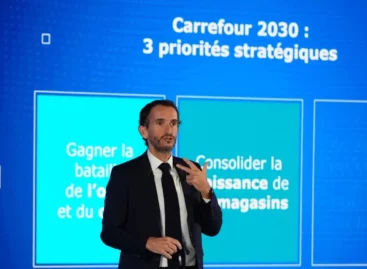AI in customer service: tangible business benefits in retail
A domestic retailer, Leziter Kft., uses voice-based artificial intelligence to call customers on the day of delivery to confirm receipt – the receipt rate improved by 92% after the introduction. The example clearly shows: in expensive, risky home deliveries (furniture, technical goods), AI can bring immediate financial results by reducing “no shows” and stabilizing flight organization – writes G7.
 In the Hungarian market, AI customer service still mainly runs on chat: most companies first enter with chat and email automation, voice solutions are now starting to spread. The banking, telecom and e-commerce sectors are leading the adaptation; The Czech Republic and Poland are ahead in digital channels, which accelerates AI-based self-service there.
In the Hungarian market, AI customer service still mainly runs on chat: most companies first enter with chat and email automation, voice solutions are now starting to spread. The banking, telecom and e-commerce sectors are leading the adaptation; The Czech Republic and Poland are ahead in digital channels, which accelerates AI-based self-service there.
There is also plenty of international best practice: the Czech Kiwi.com works with AI agents on multiple channels (app, email, WhatsApp) that decide whether human intervention is needed and “coordinate” with each other. With them, 80% of this year’s inquiries have already been answered by AI, the response time has halved from 4 minutes to 2 minutes, while customer satisfaction has increased by 30%.
The next wave is the “mailbot” and voice solutions: the Hungarian language and pronunciation are still a challenge, but the cost-saving potential is great. Meanwhile, AI support for background processes (offering rules, knowledge articles during a live call) dramatically shortens the “silent” minutes of calls and relieves operators.
Risk management is required: generative models can “hallucinate”. The proven recipe is the use of topic-specific (baggage, refund, etc.) agents and strict content limits, plus A/B tests with extreme questions. The EU AI Act will make human agent availability and transparency mandatory in several areas by the summer of 2026 – it is worth preparing for this now.
Labor market impact: transformation instead of mass layoffs. Routine tasks (password, package tracking, billing basics) are handled by bots, while humans focus on complex matters requiring empathy and manage multiple channels simultaneously. Companies should invest in reskilling in addition to technology.
What should retailers do now?
• Minimize “no shows”: automatic, voice confirmation of receipt and time fine-tuning on the day of delivery.
• First line automation: chat and mail bot for the top 20 case types, with a well-defined “escalation to a human” threshold.
• Operator copilot: offering knowledge material during a live call, summary generation, next step suggestion.
• Governance: data connection cleanup, content restrictions, logging, continuous training and testing.
The lesson is simple: AI-based customer service is not a “brave new world”, but a tangible P&L impact. Those who start at low-risk, high-return points (delivery confirmation, chat/email automation) will quickly see financial results and customer experience improvements – and in the process prepare for stricter EU compliance.
Related news
PwC Global CEO Survey: CEO confidence at a five-year low
🎧 Hallgasd a cikket: Lejátszás Szünet Folytatás Leállítás Nyelv: Auto…
Read more >Related news
Nestlé to sell remaining ice-cream assets but commits to Froneri venture
🎧 Hallgasd a cikket: Lejátszás Szünet Folytatás Leállítás Nyelv: Auto…
Read more >Lidl guarantees fairer prices for cocoa farmers
🎧 Hallgasd a cikket: Lejátszás Szünet Folytatás Leállítás Nyelv: Auto…
Read more >40 secure jobs, sustainable solutions – new BURGER KING® in Csepel
🎧 Hallgasd a cikket: Lejátszás Szünet Folytatás Leállítás Nyelv: Auto…
Read more >









